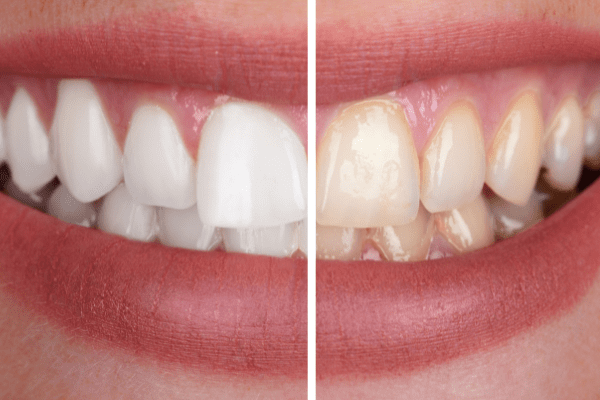
14 Aug Coronary Artery Disease (CAD): A Guide for Understanding Your Heart Health
Coronary Artery Disease (CAD): A Guide for Understanding Your Heart Health
By Island Hospital | August 14, 2024 12:00:00 PM
Medical Reviewer: Dr. Lee Tjen Jhung, Cardiologist
Coronary artery disease (CAD) is a silent yet formidable threat to heart health. It can develop insidiously over years or decades without noticeable symptoms until reaching an advanced stage.
Hence, it affects millions worldwide and ranks among the leading causes of death globally.
In this comprehensive guide, we will explore the intricacies of CAD, from its underlying causes and risk factors to its various manifestations and treatment options.
Continue reading to arm yourself with essential knowledge about this critical cardiac condition.
What is Coronary Artery Disease?
Coronary artery disease, also known as CAD, coronary arteriosclerosis, or coronary heart disease, is the most common type of heart disease. It is characterised by restricted blood flow to the heart muscle.
CAD occurs when your coronary arteries, which supply oxygen-rich blood to your heart, become narrowed or blocked. This limits your heart’s access to oxygen and vital nutrients.
What are The Symptoms of Coronary Artery Disease?
Common symptoms of CAD include:
- Chest pain or discomfort (angina)
- Shortness of breath
- Heart palpitations
- Fatigue
- Nausea or vomiting
- Cold sweats
- Dizziness
- Discomfort or pain that spreads to your jaw, teeth, neck, shoulder, back, arm, or sometimes your upper belly.
When the coronary artery that sends blood and oxygen to your heart is blocked completely, a heart attack will occur.
Check out this article for a deeper dive into the warning signs of a heart attack!
What are The Types of Coronary Artery Disease?
1. Obstructive Coronary Artery Disease
This is the most common and well-known type of CAD.
At its core, this condition is driven by the accumulation of plaque—a complex mixture of cholesterol, fatty substances, cellular waste products, and other materials—on the inner walls of your coronary arteries.
Over time, this plaque buildup gradually narrows and hardens your arteries. As your arteries become increasingly constricted, blood flow to your heart is progressively restricted.
In severe cases, this may cause a heart attack, which requires immediate medical attention to minimise heart damage.
2. Non-Obstructive Coronary Artery Disease
Unlike obstructive CAD, this form of CAD isn’t caused by plaque buildup. Instead, it stems from other coronary artery problems, such as:
- Myocardial bridging (one of the coronary arteries tunnels through the heart muscle)
- Coronary vasospasm (improper artery constrictions)
- Endothelial dysfunction (damage to the artery lining)
- Microvascular dysfunction (malfunctions in smaller artery branches)
Despite the absence of plaque, non-obstructive CAD can still manifest with typical cardiac symptoms such as chest pain and shortness of breath.
Interestingly, while this condition can affect anyone, it is more prevalent in women.
Interested in learning about other key health concerns that affect women? Don’t miss our article which offers valuable insights into common health issues among women!
3. Spontaneous Coronary Artery Dissection (SCAD)
SCAD is a rare but severe cardiac condition characterised by a sudden tear in your coronary artery wall.
This tear can partially or completely obstruct blood flow to the heart, potentially leading to severe complications such as heart attack or dangerous heart rhythm disturbances. If left untreated, SCAD may result in sudden death.
Currently, the exact cause of SCAD remains elusive. However, certain risk factors have been identified:
- Being female, particularly those who have recently given birth.
- Exposure to extreme stress, whether physical (such as intense exercise) or emotional.
- Severe hypertension
- Illegal drug use
- Certain genetic conditions that affect your connective tissue.
Given the complexity and potential severity of these conditions, it is essential to seek professional medical advice if you experience any symptoms or have concerns about your heart health.
At Island Hospital, our cardiologists are committed to helping you maintain optimal heart health. Contact us for a consultation today!
What are The Risk Factors for Coronary Artery Disease?
The risk factors that elevate the risk of developing CAD include:
1. High blood pressure (hypertension)
Consistently elevated blood pressure forces your heart to pump harder, damaging your arterial walls and accelerating plaque buildup.
When the coronary arteries, which supply oxygen-rich blood to the heart, become narrowed or blocked, the risk of CAD escalates.
2. High cholesterol levels
Excess cholesterol in your bloodstream can accumulate in artery walls, forming plaque that narrows and hardens your arteries. This process, known as atherosclerosis, is a primary cause of CAD.
3. Smoking
Harmful chemicals in tobacco smoke can damage your blood vessels, reduce oxygen in your blood, promote atherosclerosis, and increase your risk of having blood clots.
These effects significantly increase the likelihood of developing CAD and other cardiovascular diseases.
4. Obesity
Excess body fat can lead to cholesterol plaque buildup in your heart arteries.
Additionally, obesity is related to other risk factors for CAD, such as diabetes and high blood pressure, and it also promotes inflammation in your body.
All these factors can contribute to the development of CAD.
5. Diabetes
High blood sugar levels in diabetes can damage the blood vessels and nerves that control your heart. This damage, combined with other diabetes-related complications, significantly increases the risk of developing CAD.
6. Physical inactivity
Lack of regular exercise can lead to fatty buildup in your arteries, elevating your risk of CAD.
Physical inactivity also contributes to weight gain and weakening of your heart muscle, which can lead to the development of other risk factors for CAD.
7. Unhealthy diet
A diet high in saturated fats, trans fats, and processed foods can contribute to high cholesterol, obesity, and inflammation.
Conversely, a balanced diet rich in vegetables, fruits, and whole grains, such as the Mediterranean diet, can help protect against CAD.
8. Chronic lack of sleep
Insufficient sleep can lead to increased stress hormones, inflammation, and blood pressure, all of which contribute to the risk of CAD.
Notably, chronic sleep deprivation is also associated with other risk factors of CAD, like obesity and diabetes.
9. Excessive alcohol consumption
While moderate alcohol intake may have some cardiovascular benefits, excessive drinking can lead to high blood pressure, obesity, and high triglycerides.
These factors, along with the direct toxic effects of alcohol on the heart, increase the risk of CAD.
10. Family history of CAD
Genetic factors can predispose individuals to CAD, particularly if close relatives develop heart disease at an early age. While family history is unmodifiable, awareness can lead to earlier screening and preventive measures.
11. Increasing age
As we age, our blood vessels naturally become less flexible and more susceptible to damage and plaque buildup. While age is an uncontrollable risk factor, maintaining a healthy lifestyle can help mitigate age-related cardiovascular risks.
Remember that these factors often interact and compound each other’s effects, making a comprehensive approach to heart health essential.
Hence, regular check-ups, open communication with your healthcare providers, and a commitment to a heart-healthy lifestyle are the key steps in managing these risk factors effectively.
What are The Ways to Diagnose Coronary Artery Disease?
Diagnosing CAD involves a comprehensive approach combining physical examination and various diagnostic tests.
The process typically begins with a thorough physical examination by your healthcare provider. This initial assessment includes:
- Measuring your blood pressure
- Listening to your heart with a stethoscope
- Discussing your symptoms, medical history, lifestyle, and family history of heart diseases.
Then, based on your symptoms and individual patient factors, your healthcare provider may recommend some of the diagnostic tests below to assess your heart functions further and diagnose CAD:
1. Electrocardiogram (ECG)
- Records your heart’s electrical activity and rhythm.
- Helps detect signs of previous and ongoing heart attacks.
2. Echocardiogram
- Uses ultrasound waves to provide video images of your pumping heart.
- Assesses your heart function and structure.
3. Stress Test
- Evaluates your heart function and blood flow under exertion.
- Involves using a treadmill or medication to stress your heart.
- May include imaging tests like echocardiography or nuclear imaging to identify areas of reduced blood flow in your heart.
4. Cardiac Catheterization:
- Involves injecting a special dye into your coronary arteries.
- The dye will help identify blockages or arteries narrowing in your heart on an X-ray.
5. CT Scan
- Detects calcium deposits in your arteries (coronary calcium scoring) and identifies heart anomalies.
- Provides detailed images of your heart and blood vessels.
6. Blood Tests
- Measures your cholesterol levels and other markers of ongoing heart attacks or heart failure.
These diagnostic methods allow healthcare providers to create a clear picture of your heart health and develop a tailored treatment plan if CAD is detected.
Early detection is the key to managing CAD effectively, and so does irregular heartbeat. Check out our article on the importance of cardiac arrhythmia screening to learn how our screening package can detect silent irregularities in your heart rhythm.
How to Treat Coronary Artery Disease?
Treatment for CAD typically involves a multi-faceted approach , combining lifestyle changes, risk factor management, medications, and, in some cases, invasive procedures.
Here is an overview of these treatment strategies:
1. Lifestyle Changes
Adopting a healthy lifestyle is vital in combating CAD.
These habits can prevent further plaque buildup in your arteries and even reduce existing plaque:
- – Adopt a healthy diet
- – Stop smoking
- – Maintain a healthy weight
- – Exercise regularly
- – Get enough sleep
- – Manage your stress
- – Get regular health screenings
These strategies are not only treatment methods but also effective ways to prevent CAD. For more detailed information, please refer to our article on how to prevent heart disease.
2. Risk Factor Management
Working closely with your healthcare provider to manage CAD risk factors can slow disease progression.
For more information on CAD risk factors, check out our dedicated section.
3. Medications
The table below shows the common medications for CAD management.
Function | Example(s) |
|---|---|
a) Cholesterol Management | |
b) Blood Pressure Management and Heart Rate Control | |
c) Blood Thinners (Antiplatelets) | |
d) Angina Relief |
While these medications play a crucial role in managing CAD, they should only be taken under the guidance and prescription of a qualified healthcare provider.
Self-medication can be dangerous and counterproductive, as the condition of every patient is unique.
The appropriate medication, dosage, and combination can vary significantly based on individual health profiles, existing conditions, and potential drug interactions.
Thus, always follow your doctor’s instructions regarding medication use and report any side effects or concerns promptly.
4. Invasive Procedures
In cases where your arteries have become severely narrowed, or symptoms don’t respond to medications, doctors may recommend invasive procedures such as:
- Coronary artery bypass graft surgery (CABG)
- Percutaneous coronary intervention (PCI), coronary angioplasty and stent placement
- Balloon angioplasty
It is important to note that the specific treatment plan depends on the severity of your condition and individual patient factors.
Hence, consult a professional cardiologist for a personalised treatment plan tailored to your needs and condition.
Experience Unparalleled Heart Care at Island Hospital
Indeed, coronary artery disease is a severe health condition. However, its impact can be significantly reduced with proper knowledge, early detection, and lifestyle modifications.
Hence, if you are concerned about your heart health or experiencing any symptoms mentioned in this article, please don’t hesitate to seek professional medical advice.
At Island Hospital, our Cardiology Department and Heart Centre offer state-of-the-art facilities and expert care for all cardiac-related concerns. Our professional cardiologists, nurses, and support staff are always ready to guide you through the process of heart care.
Notably, our commitment to excellence has earned us recognition as the finalist for Malaysia’s Flagship Medical Tourism Hospital Programme and a place on Newsweek’s lists of World’s Best Hospitals 2024 and Best Specialized Hospitals Asia Pacific 2024 (Cardiology).
For those looking to take a proactive approach to their heart health, do consider our Comprehensive Cardiac Arrhythmia Screening package. This thorough assessment can help detect potential issues early, allowing for timely intervention and personalised treatment plans.
If you have any questions, please don’t hesitate to contact us. Your heart deserves the best care possible, and at Island Hospital, that’s exactly what we provide.
Take Charge of Your Health Today!

Introducing our Executive Health Screening Package for just RM760.
This comprehensive health check includes a physical examination, complete medical report, consultation with a health screening physician or specialist, light refreshments, and an exclusive Island Hospital woven bag.
Prevention is always better than cure, so take charge of your well-being by booking our Executive Health Screening Package today!
FAQ
Can a weak heart be strong again?
Yes. While the extent of recovery depends on the initial damage, a weakened heart can often regain strength with proper care and commitment.
Through medical treatments, dedicated adherence to medical advice and lifestyle changes, many patients see significant improvements in their heart function and overall health.
To speed up your recovery, you can undergo cardiac rehabilitation, a medically supervised program designed to enhance cardiovascular health.
This program typically involves exercise counselling and training, medication and stress management, and education on heart-healthy living.
What is the life expectancy of someone with CAD?
The life expectancy of someone with CAD is not a one-size-fits-all answer.
While CAD has been shown to decrease life span significantly, the extent of this impact varies widely among individuals.
Factors such as the severity of the disease, the patient’s age, adherence to treatment plans, and lifestyle choices all play crucial roles in determining long-term outcomes.
Hence, it is crucial to work closely with your healthcare provider to develop an effective treatment plan and make necessary lifestyle changes to improve your prognosis.
What are the warning signs of coronary heart disease?
Warning signs of coronary heart disease include:
- Chest pain or discomfort (angina)
- Shortness of breath
- Heart palpitations
- Fatigue
- Nausea or vomiting
- Cold sweats
- Dizziness
- Discomfort or pain that spreads to the jaw, teeth, neck, shoulder, back, arm, or sometimes the upper belly.
Note that symptoms can vary, especially in women, and some people may not experience noticeable symptoms until a heart attack occurs.
Can you fully recover from coronary artery disease?
While coronary artery disease cannot be completely cured, it can be effectively managed, and its progression can be slowed or halted.
With proper treatment, lifestyle changes, dedicated adherence to medical advice, and regular medical care, many people with CAD lead healthy and active lives.
When should I call 999?
Call 999 immediately if you or someone near you experiences:
- Severe chest pain or pressure lasting more than a few minutes.
- Difficulty breathing or shortness of breath.
- Fainting, severe dizziness, or loss of consciousness.
- Sudden weakness or numbness in the face, arm, or leg, especially on one side of the body.
- Sudden severe headache with no known cause.
- Persistent nausea and vomiting.
These symptoms could indicate a heart attack or stroke, which requires immediate medical attention. Remember, it’s always better to be safe and seek help if you are unsure.






